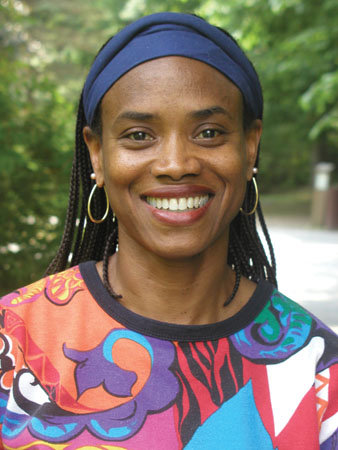By Irene Monroe
 In this tech savvy era of electronic companions and social networking tools—like Facebook, Twitter, Match.com and Tinder—dominate the hook-up scene. No one would think big-city Millennials, both straight and LGBTQ, would have an arduous time finding their significant other.
In this tech savvy era of electronic companions and social networking tools—like Facebook, Twitter, Match.com and Tinder—dominate the hook-up scene. No one would think big-city Millennials, both straight and LGBTQ, would have an arduous time finding their significant other.
However, playwright Joshua Harmon in “Significant Other” disabuses us of the notion with his hilariously funny but painfully honest, insightful, hapless and lovable protagonist Jordan Berman, a 29 year old gay New York bachelor whose life revolves around three female BFF’s who eventually find their soulmates and marry.
“I’m almost 29 years old, and no one has ever told me they love me,” Jordan says. “That’s, like, a problem, isn’t it?”
Harmon states that he begins every play with a theme or “a question that I don’t have an answer to. ‘For Significant Other’: How do you live when you know you’re not living the life that you think you ought to be living?”
Harmon is masterful in drawing his audiences in to ponder these universal themes and questions, but subversive in terms of who in his cast of characters wrestles with the issue.
“Jordan,” Harmon told The Boston Globe, “is the quintessential gay neurotic, 20-something Jew in New York City.” The normalization of LGBTQ characters signal a significant shift in time as well at attitudes where once a Jordon-like character would be portrayed as a caricature rather than a complex individual grappling with a particular chapter in his life.
Jordan “is in all of us” Christine tells me, who I had the pleasure of talking with, at the play. “There is not a person alive who cannot relate to the theme of this play. The longing to make that intimate and soulful connection.”
But making the connections are difficult. In “ Alone Together: Why We Expect More From Technology and Less From Each Other” MIT Technology and Society professor Sherry Turtle gives insight into the problem.
“Consider Facebook—it’s human contact, only easier to engage with and easier to avoid. Developing technology promises closeness. Sometimes it delivers, but much of our modern life leaves us less connected with people and more connected to simulations of them.”
According to Match.com 40 million Americans use online dating services and finding someone favors males: 86 unmarried men for every 100 unmarried women. Unfortunately, there was not data for the LGBTQ dating scene that’s Jordan’s demographic group. However, I think just eyeing the gay male scene in Greater Boston that a Jordan-like person would do just fine hitching a husband or two.
Looking at the pitfalls of today’s young hook-up scene “Significant Other” queries the institution of marriage that Jordan depicts as a “conformist celebration” especially now when nonromantic needs are satisfactorily fulfilled in friendships. But clearly Jordan’s three female BFF’s, Kiki, Vanessa, and Laura, want more than a super great touchy-feely platonic friendship with each other. And, so, too Jordan.
Jordan’s loneliness is palpable and the monologues expressing his yearning to be with someone is hauntingly familiar to us all.
While Jordan’s BFF’s all go off to marry their Mr. Right, disrupting if not dissolving for Jordan rituals created in their friendships, like having the first dance with Laura at weddings, I was glad the story didn’t have a contrived saccharine ending with Jordan finding his Mr. Right, too.
Instead Harmon masterfully ties in the intergenerational connection with the theme of finding your mate with the character Helene, Jordan’s grandmother. Helene looks like the character Sophia Petrillo from the 1980’s sitcom “The Golden Girls.” Helene’s the oral historian of the family keeping Jordan connected to his roots and the family’s stories. Helene recognizes Jordan’s loneliness and tries to assuage his angst in searching for Mr. Right by telling him about life: “It’s a long book. You are in this part of the chapter. Sometimes it’s just getting through it.”
“The message I went away with is that it is very difficult regardless of age, race, gender, or sexual orientation to find a suitable mate,” Rose, who I also had the pleasure of talking to after the play.
“Significant Other” is now playing at SpeakEasy Stage company until October 2016 before its Broadway premiere in February 2017.
“I was not prepared for such poignant comedy, the play touched on so many emotions, Mary Reed of Boston told me. And Christine chimed in agreeing stating “ This production is a “must see.” It defines what sustains us all: To love and to be loved.”
Harmon is not new to the theater scene. “Bad Jew” which probes the question “What do you do with Judaism” received critical acclaim. And, now, so too will “Significant Other.”
First published in Bay Windows, September 15, 2016.



